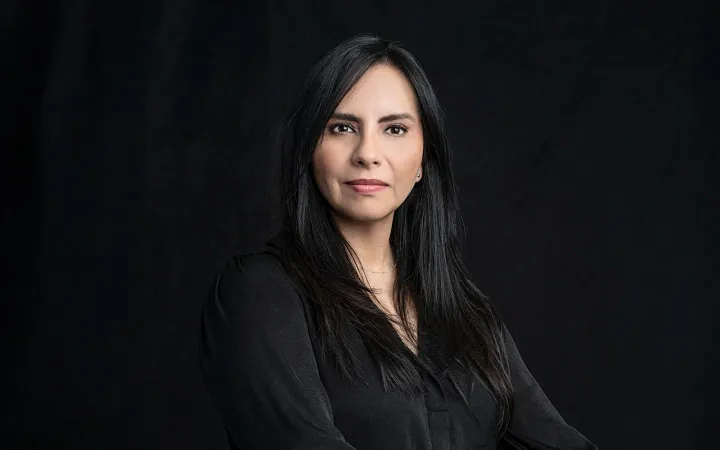Por Linda Atach Zaga
Encontré a mi hijo Roberto tres años después de que me lo desaparecieron, el 14 de julio de 2017. Fue el número 93 de los cuerpos recuperados por “Las Buscadoras”.
Ese día murió mi esperanza de encontrarlo vivo, pero también descansé porque finalmente le cumplí la promesa de encontrarlo. Desde entonces uso la playera verde que comparto con mis compañeras que también han encontrado a los suyos y que lleva la leyenda
“Promesa cumplida.”
Mirna, madre perteneciente a Las Buscadoras
Decidí esperar a que pasara el día de muertos para escribir sobre los hermanos Dan Israel y Grace Mahogany Fernández Morán. Lo hice con el fin de dejar bien claro que, además de implicar el más hondo de los infiernos para las víctimas y quienes las rodean, la desaparición no puede compararse a la muerte. De ninguna manera.
Irremediable en su esencia, la muerte es descanso y consuelo, la certeza del fin y el principio de algo. Así y radicalmente opuesta a la primera, la desaparición es sólo el limbo y la incertidumbre: la extraña posibilidad de vivir sin manifestarse, de cara a una memoria que se debate entre reconocer que el desaparecido vive y la creencia de que ha muerto.
Como la mayor parte de los mexicanos de a pie -y aspiracionistas-, que lo único que deseamos es salir adelante y vivir en paz, Dan y Grace se movían en el marco de una vida “normal” hasta el 19 de diciembre de 2008, cuando la desaparición de su hermano Dan Jeremeel les detuvo la vida. Desde entonces experimentan el mismo dolor que desmorona la existencia de los amigos y familiares de las más de 112,000 personas que han desaparecido desde el inicio de la guerra que el Estado le declaró al narcotráfico en 2006.
Como la de Grace y Dan Israel, las historias de los padres, madres, abuelos, activistas, buscadores, tíos e hijos de las víctimas de la desaparición forzada son parecidas y se distinguen tan sólo por los nombres, los lugares y las fechas. Desbordantes de frustración, los testimonios coinciden en la emoción y se quiebran cuando explican el inhumano, pero a la vez necesario proceso que toca la búsqueda de personas:
¿Cómo encontrar y reconocer entre la tierra y los despojos de las fosas clandestinas los rasgos de quien has amado? ¿Qué sucede en un país donde se ruega por hallar con vida a un ser querido, para después desistir y desear solamente su digna sepultura? ¿Con qué humanidad se desprecia la vida al grado de negarle su derecho de ser?
No hay nada más frustrante que cuestionar sin que te respondan o llorar y sentir que te quieres morir sin que te acompañen. Para Dan Israel, la desaparición de su hermano supuso soledad y un corte tajante en la piel. Me quitaron un pedazo de mí. Jeremeel era mi ejemplo, mi hermano mayor, esposo y padre de cinco hijos y quien me enseñó a ser quien soy, me dice Dan con el rostro serio, del que por más que repite lo que dice, sigue padeciendo.
A pesar de ser un activista que continúa a la labor de quienes exigieron la figura de la Tipificación de la Desaparición y que luchó por la las Ley General de Desaparición Forzada de Personas, la de la Desaparición Cometida por Particulares y por la instauración del Sistema Nacional de Búsqueda -que llegaron para facilitar ciertos procedimientos- y aveces se entusiasma con los pequeños pasos que pueden acercarlo a su hermano, Dan lamenta que en este país la primera alternativa sea negar la falta de tantos y que la carnicería de más de 200,000 personas en los últimos seis años se prolongue sin darnos tregua.
Grace habla todavía más fuerte: sus quejas son directas y quizá todavía más sensibles. Ella se apega al aspecto emotivo, al de la madre que se marchita esperando al hijo que se fue a los 34 y que hoy cumple 50. Denuncia así mismo que a los desaparecidos se les quiera borrar el nombre y la memoria. También condena que los equipos forenses sean tan insuficientes ante el tamaño de la tragedia: el Estado nos queda a deber la impartición de justicia. Es increíble que la gente siga evaporándose sin más explicación que las palabras vanas que emiten las autoridades antes de cambiar de tema y salir del paso, con el pendiente de más de 50,000 cadáveres sin identificar.
Pensar en la erradicación de la desaparición forzada en el escenario del México actual requiere de voluntad política y acciones que hoy todavía parecen lejanas. Mientras no entendamos que la impunidad es la madre del mal, las cosas seguirán como hasta ahora o peor. Es tiempo de abrir los ojos.

Las opiniones expresadas son responsabilidad de sus autoras y son absolutamente independientes a la postura y línea editorial de Opinión 51.






Comments ()